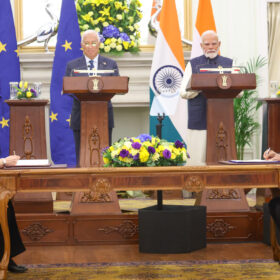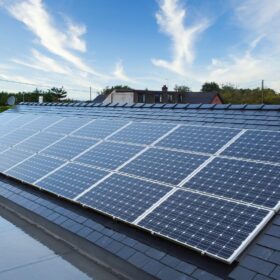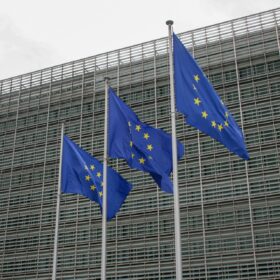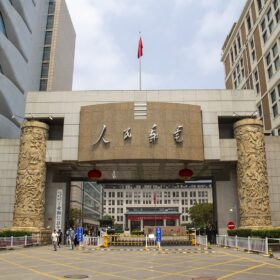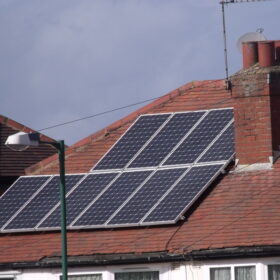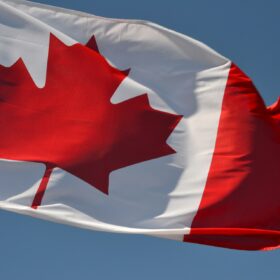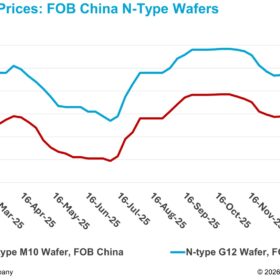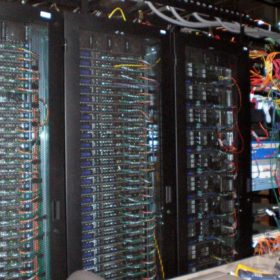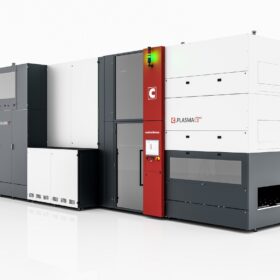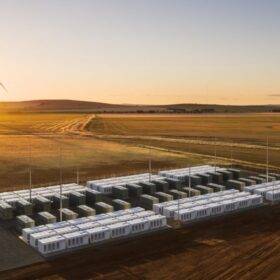India–EU FTA anchors climate and trade in a fracturing global order
The India–EU free trade agreement is emerging as a platform for climate-trade convergence. The climate dimension is not incidental—it’s already embedded in ongoing India–EU frameworks.
Pre-Budget 2026: Solar and storage industry calls for tax reforms, PLI expansion, and circular economy push
Ahead of the presentation of the Union Budget 2026–27, stakeholders across India’s solar and energy storage ecosystem have urged the government to focus on tax reforms, expansion of production-linked incentive (PLI) schemes with targeted allocations, faster viability gap funding (VGF) disbursements, additional funding for residential rooftop solar, improved access to long-term and affordable green finance, and a stronger push for circular economy initiatives and grid modernisation.
UK to spend $20 billion on home energy upgrades, mandatory PV for new homes
Cash grants and state-backed loans to support solar and battery storage installations in millions of UK homes as part of government Warm Homes Plan. UK government says investment has the potential to triple the number of homes with rooftop solar by 2030.
EU to ban Chinese inverters? – Commission proposal in Cybersecurity mulls ‘high-risk vendors-list’
The European Commission is revising its Cybersecurity Act. While presenting the proposals in European Parliament, the commission’s Executive Vice-President for Tech Sovereignty, Security and Democracy, Henna Virkkunen, said dependency on a very limited number of solar inverter suppliers could “pose a significant security risk.”
China strengthens intellectual property protection in solar industry
Chinese authorities are planning to implement a series of policy measures to introduce stronger intellectual property protection to the country’s photovoltaic sector. Chinese enterprises are being encouraged to accelerate technological advancements and reserve basic patents for developing technologies.
India introduces ‘Battery Aadhaar’ system to track EV batteries across lifecycle
India’s Ministry of Road Transport and Highways (MoRTH) has released draft guidelines for the implementation of a Battery Pack Aadhaar system—an indigenous digital identification and data storage mechanism designed to ensure end-to-end lifecycle traceability of batteries, particularly those used in electric vehicles (EVs).
India’s energy transition has shifted gears decisively
India is moving decisively beyond capacity addition toward system-level maturity. Expanded transmission planning, a more diversified energy mix and better regulatory clarity signal a market design that is becoming ever more dynamic and future ready.
Why Tier-2 and Tier-3 cities will drive India’s next big solar jump
Tier-2 and Tier-3 cities are no longer behind in the solar journey, they are becoming the main growth drivers. With better government support, easier net-metering rules, and more awareness about savings, people in smaller cities are now ready for rooftop solar in a big way.
China files WTO complaint against Indian solar subsidies
China’s Ministry of Commerce has raised a complaint at the World Trade Organization (WTO) regarding India’s solar subsidies, claiming they give the country’s domestic industry an unfair advantage and harm Chinese interests.
Canada opens review into anti-dumping duties on Chinese PV modules, laminates
Canada’s International Trade Tribunal is running an interim review of the country’s anti-dumping and countervailing duties on solar modules and laminates from China, following a request to exclude flexible solar panels that affix to curved surfaces.
